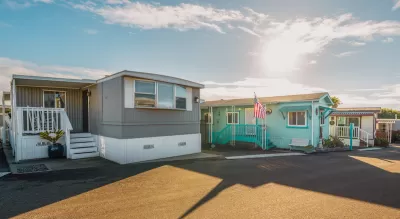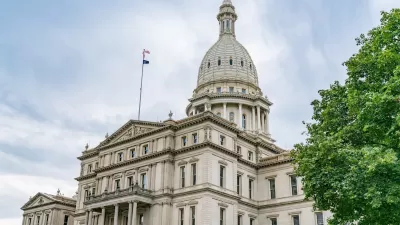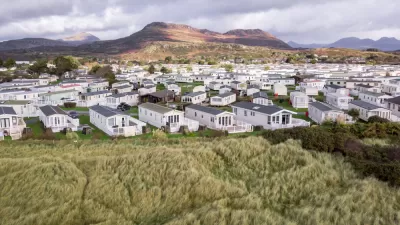In a trend that has accelerated since the pandemic, over one in five mobile home parks in Maine are owned by out-of-state investors.

Over 20 percent of mobile home parks in Maine are owned by out-of-state investors, reports Zara Norman of Bangor Daily News, sparking affordability concerns among residents and housing advocates.
“Long ago, these parks were generally owned by the family owners who built them. Many of those owners are hitting retirement age and selling to corporate investors eager to scoop up some of the last bastions of affordable living,” Norman explains. “Almost always, they immediately increase lot fees on the residents that typically own their homes and steadily raise rent thereafter. New parks are almost never built, keeping rents high.”
While the parks are an attractive investment for owners, these tactics put residents — many of whom are elderly and on a fixed income — at risk of eviction and homelessness. A growing movement to put ownership into the hands of mobile home park residents seeks to combat these risks through cooperatively owned parks, but residents who want to purchase the land they live on often come up against challenges with loan financing. Some states, like New York, have passed legislation to protect residents and allow mortgages and mortgage pool insurance for manufactured homes.
FULL STORY: Out-of-state investors own 1 in 5 of Maine's mobile home parks

Alabama: Trump Terminates Settlements for Black Communities Harmed By Raw Sewage
Trump deemed the landmark civil rights agreement “illegal DEI and environmental justice policy.”

Study: Maui’s Plan to Convert Vacation Rentals to Long-Term Housing Could Cause Nearly $1 Billion Economic Loss
The plan would reduce visitor accommodation by 25% resulting in 1,900 jobs lost.

Planetizen Federal Action Tracker
A weekly monitor of how Trump’s orders and actions are impacting planners and planning in America.

Wind Energy on the Rise Despite Federal Policy Reversal
The Trump administration is revoking federal support for renewable energy, but demand for new projects continues unabated.

Passengers Flock to Caltrain After Electrification
The new electric trains are running faster and more reliably, leading to strong ridership growth on the Bay Area rail system.

Texas Churches Rally Behind ‘Yes in God’s Back Yard’ Legislation
Religious leaders want the state to reduce zoning regulations to streamline leasing church-owned land to housing developers.
Urban Design for Planners 1: Software Tools
This six-course series explores essential urban design concepts using open source software and equips planners with the tools they need to participate fully in the urban design process.
Planning for Universal Design
Learn the tools for implementing Universal Design in planning regulations.
Caltrans
Smith Gee Studio
Institute for Housing and Urban Development Studies (IHS)
City of Grandview
Harvard GSD Executive Education
Toledo-Lucas County Plan Commissions
Salt Lake City
NYU Wagner Graduate School of Public Service





























